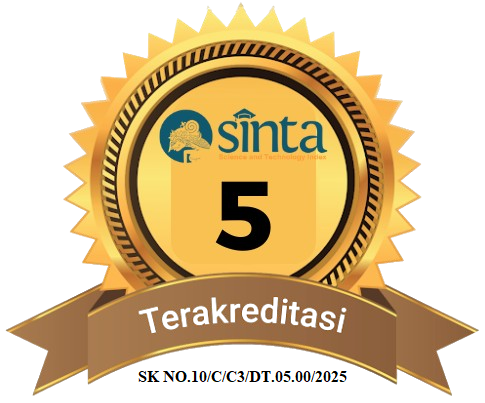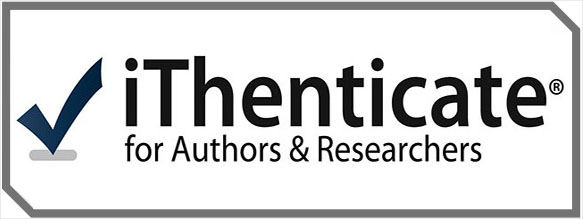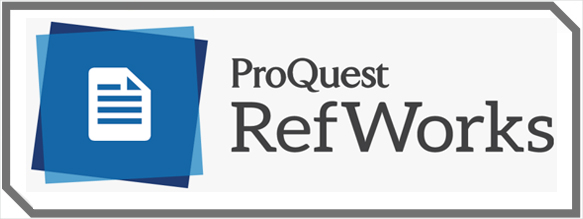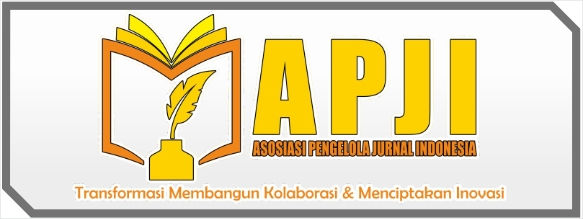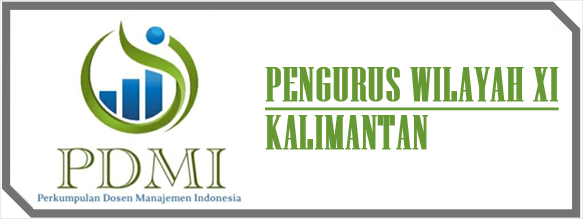THE ROLE OF INFORMATION TECHNOLOGY THROUGH MODERATING COMPETITION INTENSITY IN IMPROVING THE INNOVATION PERFORMANCE OF MSME ACTORS
DOI:
https://doi.org/10.62394/projmb.v3i2.92Keywords:
Competition Intensity, Information Technology, Innovation PerformanceAbstract
The purpose of this study was to determine: (1) The influence of IT on the innovation performance of MSME actors in culinary tourism MSME actors in Kolaka Regency. (2) The Role of Competition Intensity in Strengthening IT in Improving the Innovation Performance of MSME Actors in Culinary Tourism in Kolaka Regency. This study uses a quantitative method approach. The population in this study were all culinary tourism MSME actors in Kolaka Regency. While the sample in this study amounted to 32 MSME actors. Testing of the research instrument used validity and reliability tests with SPSS 25.0. The data analysis technique used in this study was a measurement model and structural model testing using Smart PLS 3.0. Based on the results of the study, it is known that there is a positive and significant influence between the IT variable and the innovation performance of MSME actors, as indicated by the t-statistic of 4.898 with a p-value of 0.024. Meanwhile, the moderation of competition intensity is not able to strengthen the IT variable in improving innovation performance as indicated by the t-statistic of 0.022 with a P-value of 0.994. It can be concluded that most MSME actors in culinary tourism in Kolaka Regency have used IT in carrying out innovation performance. However, in culinary tourism in Kolaka Regency, there is no feeling of competition intensity with the use of IT in improving the performance of MSME innovation actors.
Downloads
References
Adietya, K., Miyasto, & Sugiarto, Y. (2015). Analisis Pengaruh Teknologi Informasi dan Inovasi terhadap Keunggulan Bersaing Untuk Meningkatkan Kinerja Organisasi (Studi Pada UKM Makanan di Kota Semarang). Undip E-Journal System Portal.
Alliyah, S., & Hidayat, R. (2015). Pengaruh Intensitas Kompetisi Pasar. 08, 501–521.
Asrul, S., A’ang, S., & TKA, R. (2018). Model Kesiapan dan Adopsi Teknologi Informasi di Antara Usaha Kecil Menengah (UKM) Indonesia. Kementerian Hukum Dan Hak Asasi …, 000119314. http://ur.aeu.edu.my/582/%0Ahttp://ur.aeu.edu.my/582/1/MODELKESIAPANDANADOPSITEKNOLOGIINFORMASI-2-14.pdf
Astaginy, N., Sudarnice, & Kasmawati. (2023). The Influence of Service Quality and Price on Consumer Satisfaction at Top Swalayan Kolaka. Jurnal Manajemen, 2(1), 35–43. https://doi.org/10.55123/mamen.v2i1.1358
D’Aveni, R. A., Dagnino, G. B., & Smith, K. G. (2010). The age of temporary advantage. Strategic Management Journal, 31(13), 1371–1385. https://doi.org/10.1002/smj.897
Dama, J., & Ogi, I. W. J. (2018). Pengaruh Inovasi Terhadap Dan Kreativitas Terhadap Kinerja Karyawan Pada Pt Bank Mandiri (Persero) Tbk. Manado. Jurnal EMBA: Jurnal Riset Ekonomi, Manajemen, Bisnis Dan Akuntansi, 6(1), 41–50.
Davis-Sramek, B., Germain, R., & Iyer, K. (2010). Supply chain technology: The role of environment in predicting performance. Journal of the Academy of Marketing Science, 38(1), 42–55. https://doi.org/10.1007/s11747-009-0137-1
Dos Santos, B. L., Zheng, Z. (Eric), Mookerjee, V. S., & Chen, H. (2012). Are new IT-enabled investment opportunities diminishing for firms ? Online Appendix 2 : Industry-Level Analysis. Information Systems Research, 23(2), 287–305.
Gómez, J., Salazar, I., & Pilar, V. (2017). Does information technology improve open innovation performance? An examination of manufacturers in spain. Information Systems Research, 28(3), 661–675. https://doi.org/10.1287/isre.2017.0705
Hartini, S. (2012). Peran Inovasi: Pengembangan Kualitas Produk dan Kinerja Bisnis. Jurnal Manajemen Dan Kewirausahaan, 14(1), 82–88. https://doi.org/10.9744/jmk.14.1.83-90
Iqbal, A., & Yuliandari, N. K. (2019). Determinan Kinerja Usaha Mikro, Kecil, dan Menengah (UMKM) dalam Upaya Mendukung Banyuwangi sebagai Kota Tujuan Wisata. Jurnal Manajemen Dan Kewirausahaan, 7(2), 175–188. https://doi.org/10.26905/jmdk.v7i2.3023
Joshi, K. D., Chi, L., Datta, A., & Han, S. (2010). Changing the Competitive Landscape: Continuous Innovation Through IT-Enabled Knowledge Capabilities. Information Systems Research, 21, 472–495. https://doi.org/10.1287/isre.1100.0298
Khaidir Ali Fahmi, A. (2019). Analisis Pengaruh Jaringan, Teknologi Informasi Dan Komunikasi, Serta Inovasi Terhadap Keunggulan Bersaing Dan Kinerja Usaha (Studi Pada Umkm Di Purwokkerto). Diponegoro Journal of Management, 8(4), 74–84. http://ejournal-s1.undip.ac.id/index.php/djom
Kleis, L., Chwelos, P., Ramirez, R. V, & Cockburn, I. (2011). Information Technology and Intangible Output: The Impact of IT Investment on Innovation Productivity. Information Systems Research, 23(1), 42–59. https://doi.org/10.1287/isre.1100.0338
Kusumawardhany, P. A. (2018). Pengaruh kapasitas absorptif dan situsjejaring sosialterhadap kinerja inovasi UMKM di Indonesia. Jurnal Manajemen Teori Dan Terapan, 11(1), 71–88.
Lailah, F. A., & Soehari, T. D. (2020). the Effect of Innovation, Information Technology, and Entrepreneurial Orientation on Business Performance. Akademika, 9(02), 161–176. https://doi.org/10.34005/akademika.v9i02.914
Luk Luk Fuadah. (2016). Analisis Intensitas Persaingan, Delegasi Otoritas melalui Perubahan Sistem Pengendalian Akuntansi Manajemen terhadap Kinerja Organisasi (Studi Empiris Perbankan Di Palembang). 14–16.
Melville, N., Kraemer, K., & Gurbaxani, V. (2004). Review: Information Technology and Organizational Performance: An Integrative Model of IT Business Value. MIS Quarterly, 28(2), 283–322. http://www.jstor.org/stable/25148636
Nagib, H., & Raharjo, S. T. (2019). Analisis Pengaruh Inovasi Perusahaan dalam Upaya Meningkatkan Kinerja Perusahaan (Studi Pada Industri Kecil Menengah Furniture di Jepara). http://eprints.undip.ac.id/76572/%0Ahttps://lens.org/125-790-977-107-218
Pratiwi, D. A., & Fanani, Z. (2019). the Mediating Role of Innovation: Organizational Learning. Jurnal Reviu Akuntansi Dan Keuangan, 9(2), 177. https://doi.org/10.22219/jrak.v9i2.8713
Rasjidi, R. (2017). Metodologi penelitian. Universitas Islam Jakarta, 1–186.
Ravichandran, T., Han, S., & Mithas, S. (2017). Mitigating Diminishing Returns to R&D: The Role of Information Technology in Innovation. Information Systems Research, 28(4), 812–827. http://www.jstor.org/stable/26653092
Samimi, A. (2020). Risk Management in Information Technology. Progress in Chemical and Biochemical Research, 3(2), 130–134. https://doi.org/10.33945/sami/pcbr.2020.2.6
Sangadji, S. S. (2023). Management Research Methods. PROCURATIO: Jurnal Manajemen & Bisnis, 2(1), 43–44. https://doi.org/10.5281/ZENODO.8207098
Sari, N. (2021). Strategi Dan Inovasi Pengembangan Industri Kreatif Kerajinan Khas Kota Bengkulu Era Industri 4.0. http://repository.iainbengkulu.ac.id/id/eprint/5878%0Ahttp://repository.iainbengkulu.ac.id/5878/1/NOVITA_EKIS.pdf
Sudarnice, S. (2020a). Increasing Innovative Performance through Organization Culture, Work Satisfaction and Organization Commitments. Integrated Journal of Business and Economics, 4(1), 88. https://doi.org/10.33019/ijbe.v4i1.251
Sudarnice, S. (2020b). Pengaruh Kualitas Layanan Dan Tingkat Kepuasan Pelanggan Terhadap Loyalitas Pelanggan Pada Minimarket Alfamidi Kolaka. Jurnal Dimensi, 9(2), 280–293. https://doi.org/10.33373/dms.v9i2.2541
Titing, A. S., Sudarnice, S., & Wonua, A. R. (2022). Service Quality And Brand Awareness Intervention In Affecting Customer Satisfaction At The Bri Bank Pomalaa Unit. Jurnal Ilmiah Manajemen Dan Bisnis, 8(2), 227. https://doi.org/10.22441/jimb.v8i2.15970
Tsambou, A. D., & Fomba Kamga, B. (2018). Performance Perspectives for Small and Medium Enterprises in Cameroon: Innovation and ICTs. Timisoara Journal of Economics and Business, 10(1), 68–87. https://doi.org/10.1515/tjeb-2017-0005
Wiggins, R. R., & Ruefli, T. W. (2005). Schumpeter’s Ghost: Is Hypercompetition Making the Best of Times Shorter? Strategic Management Journal, 26(10), 887–911. http://www.jstor.org/stable/20142279
Winowod, N. A., Sepang, J. L., & Tawas, H. N. (2018). Pengaruh Inovasi dan Keberanian Mengambil Risiko Terhadap Kinerja Produk dengan Intensitas Persaingan Sebagai Variabel Moderasi (Studi Kasus Cafe-Cafe di Manado). Pengaruh Inovasi…… 2908 Jurnal EMBA, 6(4), 2908–2917. www.Tempo.Co,
Zhang, H., Wang, Y., & Song, M. (2020). Does competitive intensity moderate the relationships between sustainable capabilities and sustainable organizational performance in new ventures? Sustainability (Switzerland), 12(1), 6–8. https://doi.org/10.3390/SU12010253


